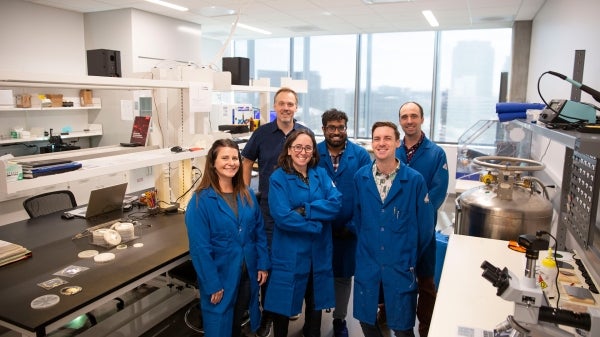ASU’s energy-systems expertise and Decision Theater will help shape Mexico’s power grid

Arizona State University’s leadership in energy systems is stretching beyond the border into Mexico. ASU was recently named a participant in a new grant that will help Mexico modernize its energy grid as well as make it more connected to the U.S.
The three-year, $26 million grant awarded to the Instituto Tecnologico y de Estudios Superiores de Monterrey (Tec de Monterrey) by Mexico’s National Council for Science and Technology (CONACYT) and its Secretary of Energy, is designed to address the energy economy in Mexico. It will help build infrastructure, perform research and conduct educational activities, preparing Mexico for its energy future.
The grant was announced as part of the launching of the Binational Laboratory for Intelligent Management of Energy Sustainability and Technology Education at Tec de Monterrey’s Mexico City campus on April 6.
Mexico is in the midst of privatizing and updating its energy industry — fossil fuel and electrical generation industries — at a time when it is moving toward using more renewables. The grant will help the country explore its energy options and how it can connect with its neighbors.
ASU is receiving $1.5 million of the grant and will provide energy economic modeling expertise via the Decision Theater. In addition, ASU will apply its renowned expertise in power engineering to the project. The University of California, Berkeley is also involved in the project.
ASU’s power engineering group will help Mexican authorities look into updating its power grid to include interconnections between it and the U.S., explore the use of micro-grids, look for energy efficiencies and bring renewable-energy sources into the grid, said Stephen Goodnick, who will lead the ASU involvement in the project. Goodnick is a professor in the School of Electrical, Computer and Energy Engineering in the Ira A. Fulton Schools of Engineering, deputy director of ASU LightWorks and a senior sustainability scientist in the Julie Ann Wrigley Global Institute of Sustainability.
“These are the areas our power systems engineering people, who lead one of the top power systems research consortiums in the country, excel.”
— ASU professor Stephen Goodnick
Goodnick said the research portion of the project will focus on current issues with the energy infrastructure in Mexico.
“There is research being done collaboratively with ASU in cross-border transmission,” he said. “Right now, there are very few interconnections between the U.S. and Mexico, so the project will look at what the issues and technical problems are associated with cross-border transmission.”
Goodnick said another part of the project will be looking into the integration of renewable-energy technologies, such as solar and wind, into the grid system. Renewable-energy sources are variable energy sources that cannot be dispatched like fossil-fuel-based sources, so the renewable systems need energy storage capacity to provide a steady amount of power on demand.
The project also will look into development of micro-grids, which can be deployed in remote areas of the country where there presently isn’t transmission infrastructure.
“These are the areas our power systems engineering people, who lead one of the top power systems research consortiums in the country, excel,” Goodnick said of the Power Systems Engineering Research Center (PSERC), which is led by Vijay Vittal, the Ira A. Fulton chair of Electrical Engineering.
He added the project will bring a cohort of PhD students from Tec de Monterrey to ASU to work on the research projects in coordination with professors in the U.S. and Mexico.
Goodnick added the project will take advantage of a Decision Theater that has been built at Tec de Monterrey’s Mexico City campus and will draw on ASU expertise in energy markets modeling to help assess the costs of various energy scenarios.
Mexico’s Decision Theater will display models on the impact of various energy investments on socio-economic variables such as GDP, job creation and tax revenue. Stakeholders can then readily use the tools to better understand the implications for their decisions and collaborate toward a common future. Plans are to build additional Decision Theaters in Mexico as part of the project.
“Decision Theater will help develop scenarios on Mexico’s future like should they add more renewables, more nuclear, more natural-gas plants,” Goodnick said. “This is very important for Mexico because they have a lot of decisions they need to make in the short term.”
More Science and technology

ASU professor honored with prestigious award for being a cybersecurity trailblazer
At first, he thought it was a drill.On Sept. 11, 2001, Gail-Joon Ahn sat in a conference room in Fort Meade, Maryland. The cybersecurity researcher was part of a group that had been invited…

Training stellar students to secure semiconductors
In the wetlands of King’s Bay, Georgia, the sail of a nuclear-powered Trident II Submarine laden with sophisticated computer equipment juts out of the marshy waters. In a medical center, a cardiac…

ASU startup Crystal Sonic wins Natcast pitch competition
Crystal Sonic, an Arizona State University startup, won first place and $25,000 at the 2024 Natcast Startup Pitch Competition at the National Semiconductor Technology Center Symposium, or NSTC…